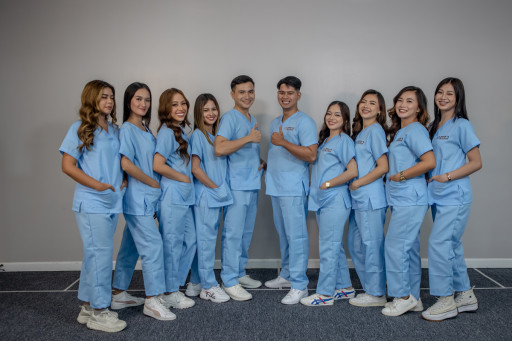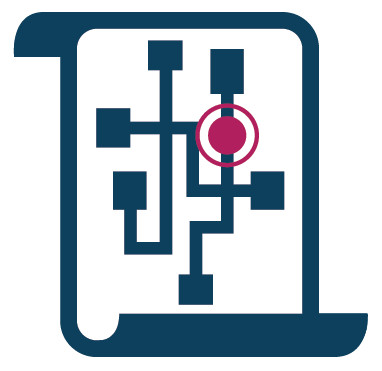Can I Speed Up My Surgery Recovery?
[ad_1]
Can I speed up my Surgery Recovery after having Cosmetic Plastic Surgery?
Recovery from surgery is one of the main concerns when patient’s scheduling their plastic surgery or cosmetic surgery procedure. Our Team aims to provide you with ways to experience a more comfortable recovery. While we AIM to help you have a speedier recovery when possible, we ALSO want you to achieve the best possible results from your procedure. That means that while we may suggest things you can DO after surgery to enhance your healing and surgery recovery period or reduce post-operation risks, you’ll need to ensure you DON’T rush the process of recovery.
If you try to rush your surgery recovery OR start doing too much too soon, you could be risking your health, incision line healing/scars and overall long-term results.
The best things you can do to ensure a good recovery – and help avoid having a longer-than-desired recovery period – is to check with your Surgeon BEFORE resuming normal exercise or other activities. Follow your Surgeon’s and Nurse’s advice precisely for best results and patient-safety after your operation. And be sure you eat well, rest well and never ever smoke as you heal from your procedure.
Resting After Surgery – Getting Good Sleep during your Recovery after Cosmetic Plastic Surgery
- Allow your body to heal and get good nutrition and rest.
- Recognise that rest may be difficult at first in the early stages of post-operation healing but will get better.
- A lack of comfortable sleep at first is expected and can leave you feeling emotional after surgery; questioning your decisions to have surgery is also very common.
- Know what to expect in terms of emotions and have good support around you (supportive friends and family who understand why you chose to have your procedure).
- Make your post-op room as comfortable as possible. Read TIPS for at-home recovery.
How we help you with Surgery Recovery after Plastic Surgery
- We go the extra mile to ensure you are not only prepared for your surgery, but you’re prepared for your recovery period as well.
- We have a Rapid Recovery Package to help you during the initial healing and surgery recovery period.
- We provide follow-up visits as part of our service and these are included in your quote (be sure you DO book and attend all follow-up appointments are recommended including annual follow-up check ups with your Surgeon).
But it’s important you don’t rush your recovery.
- Surgery is a major event.
- You want to allow your body to heal well by giving it adequate rest and recovery time, and NURTURING your body and mind during the process of plastic surgery recovery.
SPEEDY RECOVERY TIPS for Healing After Plastic or Cosmetic Surgery
Recovery time for patients varies greatly depending on the individual and the procedure. But there a several things patients can do before and after surgery to move along their recovery and scar healing.
This is where you can really help facilitate your own recovery.
Following these simple suggestions may help you to move through your surgery recovery stage quicker or more comfortably.
- For Breast surgery patients, where applicable, wear the post-surgery Bra or post-surgery compression garment(s) that have been provided for you – wear these day and night for as long as you’ve been instructed to wear them.
- Alert your Surgeon to any concerns and know what’s normal and what might be a cause for seeking treatment.
- Read the Surgery GUIDES both before you have surgery and after, including the recovery guides and Post-Op Care Guides provided to you for your procedure.
- Good nutrition is crucial to your wound healing and recovery.
- It is not appropriate for people with wounds to follow diets that limit intake, such as diets to reduce cholesterol or weight and diets that avoid entire food groups such as carbohydrates.
Quicker Surgery Recovery after having a Breast Augmentation, Tummy Tuck, Eyelid or Nose Surgery
Eating after Surgery: Foods to Choose and Diets to Avoid
Adjust your diet for nutritional healing
- Extreme dieting is a NO NO as you heal (unless you’re having weight loss surgery, which involves its own restrictive diet).
- If you have food or nutritional limitations or allergies, be sure you discuss these with your surgeon BEFORE your operation.
- This information is general in nature; and is not a substitute for what your medical practitioner advises you to choose; be sure you get direct advice from your Surgeon and do NOT consume any substances or foods that will be harmful to your healing.
- If constipation is a concern after surgery or you have constipation due to pain medications, ask your Surgeon for advice.
Nutritional Tips for What to Eat After Surgery: Greens, Fruits and Veggies (ask your Surgeon)
- Consuming fresh fruit and vegetables and maintaining a balanced diet before and after your surgery ensures your body is receiving the vitamins and nutrients it needs to aid recovery.
- Almonds, fruit, lean meats, whole grains, yogurt and seafood are all high in vitamins E, D, C and A, iron, protein, fibre and zinc.
- Foods containing these nutrients assist in wound healing and forming scar tissue, as well as promoting growth of new blood cells.
- Immunity, bone healing and repair of soft tissue is also aided by the above vitamins and nutrients.
- Also make sure you’re drinking lots of water to keep your fluids up, aim for at least 1.5 litres per day.
- Avoid alcohol and other intoxicating substances to maximise your healing capacity.
Proteins can help and may be important during healing periods.
- Protein is essential for the maintenance and repair of body tissue.
- Depleted protein levels will cause a decrease in collagen development, slowing the wound healing process. Adequate protein levels will help achieve optimal wound healing rates.
- Sources of protein include red and white meats, fish, eggs, liver, dairy products (milk, cheese, yoghurt), soy beans, legumes, seeds, nuts and grains.
Vitamin C
- Vitamin C plays an important role in collagen synthesis as well as the formation of new blood vessels (angiogenesis).
- Adequate Vitamin C levels help strengthen the healing wound.
- Vitamin C also has important antioxidant properties that help the immune system and it increases the absorption of iron.
- Vitamin C is found mostly in fruit and vegetables, especially, oranges, grapefruit, tomatoes, and leafy vegetables.
Vitamin A can help with wound healing
- Vitamin A increases the inflammatory response in wounds, stimulating collagen synthesis.
- Low Vitamin A levels can result in delayed wound healing and susceptibility to infection.
- Vitamin A is found in milk, cheese, eggs, fish and dark green vegetables.
- Source: https://www.ncbi.nlm.nih.gov/pubmed/3534019
Iron
- Iron is part of the system that provides oxygen to the site of the wound, therefore iron (haemoglobin) deficiency can impair healing.
- Iron deficiency can also result in impaired collagen production and strength of the wound. The best sources of iron in the diet are red meat, offal, fish, eggs, wholemeal bread, dark green leafy vegetables, dried fruits, nuts and yeast extracts.
Your Rapid Recovery Pack
In order to aid your rapid recovery – we provide patients with a rapid recovery pack – a mixture of “science and love” products and information to help you heal faster.
Supplementation of essential nutrients is often necessary when a normal diet is lacking. While we strongly encourage a diet that provides you with all the ingredients you need for healing, we have provided you with a range of supplements that can help provide you with nutrients that you may require more of during recovery.
Surgery Recovery and Healing Aids – Post-Operation Support for Cosmetic Plastic Surgery
Your Rapid Recovery Pack for surgery in Melbourne usually contains several of the following healing aids:
Arginaid Powder Drink
Arginine is concentrated in the skin and connective tissue and increases collagen deposition. It works at a cellular level to assist healing and stimulate the immune response. While it is found in foods such as eggs, nuts and whole grains, we have provided you with a box of Arginaid Powder Drink to give you the additional support your body will need at this time. Dissolve one packet in a glass of water twice a day, until all used.
Arnica Tablets
Derived from the European plant Arnica Montana, Arnica is traditionally used in homeopathic medicine to help relieve strains, sprains, bruising and sore, aching muscles. It may therefore help to relieve muscular pain, swelling and bruising after your surgery. Follow the dosage guidelines on the box. The small tablets dissolve quickly under your tongue.
Vitamin Tablets
Swisse Hair Skin Nails is a combination of vitamins and minerals shown to support hair, skin and nail health. It contains ingredients essential for the formation of collagen and the maintenance of healthy skin. It may be of assistance with speeding up wound healing and improving scar results. It is recommended you take one tablet per day with food.
Ginger and Peppermint Tea
After surgery some people report that they have an “unsettled” stomach, or are feeling a little “off colour”. This can be usually be attributed to the general anaesthetic. Peppermint and Ginger have a long tradition of medicinal use in relieving nausea.
Skincare Pack
As a patient of our surgeons, you will receive a complimentary Skincare pack which contains a variety of beautiful skincare products for you to enjoy. One of our nurses will usually bring this to you when she visits you in hospital for your post-operative check.
Scar Management and Scar Healing Support and Healing Aids
Other healing aids may help with scar healing or reduce scar visibility. We can give you advice on what to do to help minimise your scars.
Ask your Surgeon and Surgery team for details and be sure you take advantage of your visit to the COCO RUBY skin care teams!
HEALITE II treatments, Laser Therapy, MicroNeedling, Fraxel or other Post-Op Scar Treatment Options
- Our plastic surgeons choose from some of the latest, most advanced surgical techniques and scar minimisation technologies to HELP reduce the extent of scarring during surgery and post-operatively.
- After your wound has closed and healed, it can take over 12 months for the scar to completely settle.
- For some surgeries, we offer inclusive scar management treatments at Coco Ruby in Hawthorn East/Melbourne.
All Surgery leaves a scar. Some patients have more visible scars than others. Ask your Surgeon for information and what to expect.
Scars are areas of fibrous tissue that replace normal skin after injury/surgery.
- A scar results from the biological process of wound repair in the skin and other tissues of the body.
- Thus, scarring is a natural part of the healing process.
- With the exception of very minor lesions, every wound (e.g., after accident, disease, or surgery) results in some degree of scarring.
We offer patients “gold standard” scar minimization treatments during the scar healing period – often included in your procedure. Ask a Patient Care Coordinator which patients and which procedures usually benefit from scar treatments and what your options are for post-op scar minimisation.
Surgery Recovery: Be sure to Take it easy and don’t try to do TOO much, TOO soon.
- We recommend that our patients are taking it easy while they recover from surgery, but it’s not always easy with work commitments, young kids and a busy lifestyle.
- Being mindful of your wounds while you recover is important.
- Wound healing can easily be set back by a bump or wrong move while lifting the kids or reaching for the stationary cupboard.
- Explain to your children to be gentle, and do NOT exert yourself lifting, reaching or exercising strenuously for at least a week to 3 or more weeks after surgery, sometimes several months, as you’ll be advised depending on which procedure you chose.
- Make sure you get your rest – the so called beauty sleep!
Sleeping and Resting is very important for your recovery after Plastic or Cosmetic Surgery including Liposuction.
- Need help at home?
- There are a number of commercial services that provide home help and home recovery support for patients – please ask by phoning 1800033333 or 0388491444.
Exercise after Cosmetic or Plastic Surgery: When is it safe to resume your gym or exercise routine?
- Exercise after surgery is essential to your speedy recovery but must be done ONLY when your Surgeon recommends you’re clear to do so.
- But gentle movements and walking is usually okay after surgery – ASK your Surgeon, though, as this can vary from patient to patient and surgeon to surgeon.
- Otherwise, if all is going well after surgery, you need to get moving as soon as you can, but very gently – and no lifting, exercising or driving until your Surgeon says its okay!
- But make sure you go slowly and ease yourself back into it.
- Depending on your level of fitness and activity before surgery, you may find moving around is difficult at first.
- Follow the instructions you have been given that are specific to the surgical procedure you have undergone.
- If something feels too heavy or painful then listen to your body and take the hint!
- See your Surgeon if you have pulled your sutures or have any other concerns and remember, DO NOT try to do too much too soon, or you’ll DELAY rather than SPEED UP your recovery.
Managing Your Surgery Risks and Knowing When to Call or See Your Surgeon
- Surgery is serious and involves risks.
- Choosing whether or not surgery is right for you is a very personal decision.
- All surgery carries certain risks and complications, and after surgery, you need to carefully pay attention to any symptoms you’ve been alerted MIGHT not be normal recovery processes.
- You’ll be given a list of what to watch out for and how to care for your incision lines (surgical wounds) as you heal.
- Be sure you alert your Surgeon to any concerning symptoms or unusual sensations or other issues as advised or recommended.
- If it is after clinic hours and for any reason, you cannot reach your Surgeon and/or are feeling very unwell, call our after hours number.
- For emergencies, seek urgent medical attention/visit the emergency room if required.
- This is rare but can happen, so just be alert and know what to expect.
- Your surgeon and nurse coordinator will take you through surgery risks and potential complications associated with your surgery to help you understand what to watch out for.
- They’ll happily answer any and all questions or concerns you may have so never hesitate to call your Surgeon and/or his or her nursing team if you have a concern.
- During a consultation, you’ll also be asked to sign a consent form indicating you fully understand the procedure, the associated risks, and potential complications issues.
- So be sure you DO read and understand – and ask questions – before your surgery.
- This will definitely be of help to you to ensure a quicker recovery and better healing process.
Recommended reading about what to expect after having cosmetic surgery or plastic surgery:
Emotions After Cosmetic Surgery (Tips for Plastic Surgery Recovery)
Tips for Plastic Surgery Recovery At Home
Download the GUIDE to Recovery
Phone (03) 8849 1444 or Email us at: [email protected] or Book a FREE 15-minute Phone Chat with our Patient Liaison Manager.
Visit our FAQs pages, learn more about your procedure, have a look at our Photo Galleries.
[ad_2]
- Having breast reduction surgery so you can move more freely at the gym? Or to feel less…
- What type of scar will you get with a breast lift procedure? This is a very…
- Side Boob after breast augmentation is something some women want to attain by having breast augmentation…

 Autism testing for kids 4 and under in Arlington Heights, Deerfield, and Naperville fills a much-needed gap for local families.
Autism testing for kids 4 and under in Arlington Heights, Deerfield, and Naperville fills a much-needed gap for local families. Boost Efficiency and Elevate Patient Care With DocVA’s New Virtual Assistant Services
Boost Efficiency and Elevate Patient Care With DocVA’s New Virtual Assistant Services New patent granted assists hospitals with greater coverage to support drug waste events
New patent granted assists hospitals with greater coverage to support drug waste events Enhancing water and medical gas system management and emergency preparedness through comprehensive visual surveying documentation
Enhancing water and medical gas system management and emergency preparedness through comprehensive visual surveying documentation American Heart Association consortium advances development of evidence-based health tech solutions
American Heart Association consortium advances development of evidence-based health tech solutions